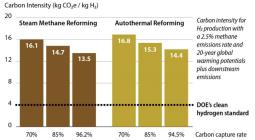Montreal Gas Plan Delivers Small Savings, Aims for Bigger Momentum

Montreal has introduced a ban on gas connections in smaller new buildings that will only eliminate 400 tonnes of climate pollution per year, but is meant to set the direction for bigger savings.
“The ban means gas-powered heating systems for buildings, hot water, and items like stoves, barbecues, pools, and spas will not be an option for new buildings up to three storeys and 600 square metres in area as of October 1, 2024,” CBC reports. The city will extend the ban to larger mew buildings on April 1, 2025.
The new bylaw, inspired by gas bans in Vancouver and New York City and adopted Wednesday, will only make a small dent in Montreal’s 10 million tonnes of annual emissions, but “represents significant progress in our community’s ecological transition,” Mayor Valérie Plante said in a release.
“When we see how much greenhouse gases come from buildings, then this is clearly the right thing to do,” she added.
The staff report leading up to the decision “underlined that 57% of greenhouse gases emitted by buildings come from the commercial and industrial sector, despite the fact they make up only 4.1% of the city’s buildings,” the Montreal Gazette writes. “Other recommendations are that the city encourage residents to make their homes more energy efficient by reducing energy consumption and promoting the use of heat pumps.”
Plante spokesperson Béatrice Saulnier-Yelle said the bylaw is “the beginning of a transition towards more sustainable construction practices, and is helping to raise awareness throughout the sector of the importance of reducing our carbon footprint.”
The bylaw exempts emergency generators, restaurant stoves, gas-powered barbecues with removable tanks, temporary heaters for construction, industrial buildings, and combustion heaters in larger buildings that rely solely on renewable gas, CBC says. Repeat violators will face fines of up to C$4,000 per day.
The ban doesn’t apply to existing buildings across the city that account for 2.4 million tonnes of emissions per year.
But Patricia Clermont, coordinator of l’Association québécoise des médecins pour l’environnement (Quebec Association of Physicians for the Environment), told CBC she was satisfied with a slower transition. “By focusing on the new, we may in fact already be influencing the existing, but without rushing people too much, by showing them all the avenues that are possible to get off gas,” she said.
PHOTO: /Pikrepo






